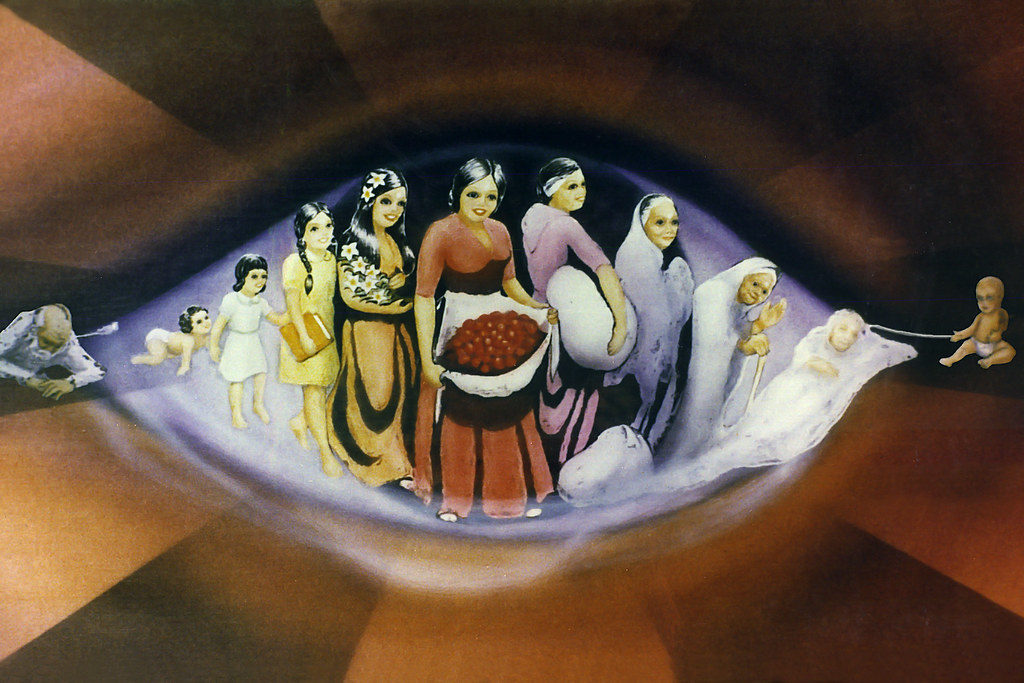Nowadays, debates about reincarnation have surged, especially in the West, fueled by advances in hypnosis and related medical fields. As more people explore the possibilities of past lives through these methods, the concept of reincarnation has gained renewed attention. Let’s delve into the details of reincarnation, examining both its ancient roots and modern interpretations.
First, it’s important to understand that reincarnation is not yet fully accepted by modern science. Although numerous research papers and compelling case studies have been presented—some of which we will explore later—there remains a degree of skepticism and uncertainty within the scientific community. Doubts and questions still persist about the validity of reincarnation from a scientific perspective.

What is Reincarnation ?
Reincarnation is the belief that after death, the soul or consciousness is reborn into a new body, beginning a new life. This concept is central to many religions, including Hinduism and Buddhism, where it is linked to the ideas of karma and spiritual growth. The cycle of birth, death, and rebirth is seen as a journey toward spiritual evolution, with each life providing opportunities to learn and resolve past actions. In some beliefs, the ultimate goal is to break free from this cycle, achieving liberation or enlightenment. These believes are more prominent in eastern religions like Hinduism, Buddhism etc.
History of Reincarnations.
The concept of reincarnation has a rich and diverse history that spans across various cultures and religious traditions.
Hinduism: The earliest references to reincarnation appear in the ancient texts of the Vedas, particularly in the Upanishads, around 800-1000BCE. Reincarnation is a fundamental belief in Hinduism, where the soul, or atman, is believed to undergo a cycle of birth, death, and rebirth. The soul’s next life is determined by karma, the sum of a person’s actions in previous live. According to the ancient Hindu scriptures, Before human birth our soul undergoes into 8 millions species.
Buddhism: Emerging from Hindu roots around the 5th century BCE, Buddhism also embraces the concept of reincarnation but with a significant difference. Buddhism does not believe in a permanent soul (anatta) but rather in a continuity of consciousness that carries karmic imprints from one life to the next. The cycle of rebirth continues until one achieves Nirvana, a state of liberation.
Ancient Greece: The idea of reincarnation was also present in ancient Greece, particularly in the teachings of Pythagoras (6th century BCE) and later, Plato (5th-4th century BCE). Pythagoras believed in the transmigration of souls, a concept where the soul could be reborn into humans, animals, or even plants, depending on its moral quality. Plato further developed this idea, suggesting that the soul undergoes multiple lives to attain purity and wisdom.
Egyptian Religion: Ancient Egyptians had a complex belief system surrounding the afterlife, though it focused more on resurrection and the journey of the soul in the afterlife rather than reincarnation in the traditional sense.
Jainism and Sikhism: Like Hinduism and Buddhism, Jainism, which emerged in India around the same time, also teaches the concept of reincarnation. In Sikhism, while not a central tenet, the idea of rebirth is acknowledged as part of the soul’s journey towards merging with the divine.
Chinese and Japanese Beliefs: In Chinese folk religion and Taoism, there are beliefs related to the soul’s journey and reincarnation. In Japan, reincarnation is present in both Buddhist and Shinto traditions, with variations in how the soul’s journey is understood.
Scientific Exploration of Reincarnation
Dr. Ian Stevenson has worked immensely on this topic. He was a psychiatrist from the University of Virginia. Over several decades, Stevenson documented thousands of cases of young children, primarily from non-Western countries, who claimed to remember past lives. These children provided detailed accounts of their previous identities, including names, places, and events. In some cases, Stevenson was able to verify the accuracy of these memories by visiting the places mentioned and interviewing people related to the past life. You can read some examples from this book. Children Who Remember Previous Lives: A Question of Reincarnation. His works with reincarnations and how it is related with biology is greatly described in his book Where Reincarnation and Biology Intersect
Hypnosis and Past Life Regression: Another aspect of research involves hypnosis, specifically past life regression therapy. Practitioners use hypnosis to help individuals access memories of past lives. While some therapists report success in helping patients uncover detailed past life memories. Dr. Brian Weiss, a prominent psychiatrist, brought the concept of past life regression to the mainstream with his bestselling book Many Lives, Many Masters. In the 1980s, Dr. Weiss accidentally stumbled upon past life memories while treating a patient under hypnosis for anxiety. The patient began recalling vivid details of previous lives, which led Weiss to explore reincarnation and past life therapy further.
Quantum Consciousness Theories: Some researchers have speculated that consciousness might be a fundamental aspect of the universe, perhaps linked to quantum processes. These theories suggest that consciousness could exist independently of the brain and might be capable of transferring between bodies, potentially explaining reincarnation. However, these ideas are highly speculative and remain on the fringes of mainstream science.
Conclusion
The exploration of reincarnation offers a fascinating journey through ancient beliefs, philosophical debates, and modern scientific inquiries. While the concept has deep roots in many cultures and religions, it remains a subject of both intrigue and skepticism in the scientific community. Whether viewed as a spiritual truth or a psychological phenomenon, reincarnation continues to captivate the human imagination, inviting us to ponder the mysteries of life, death, and the possibility of life beyond. As research in this area evolves, we may find ourselves closer to understanding the profound questions that reincarnation raises about the nature of consciousness and our place in the universe. Until then, the debate remains open, encouraging further exploration and discussion


Ancient wisdom, is just that wisdom, and therefore cannot find a place in our current ideological stew, we call science and man made religion. First humans need to accept the fact that we are divine with an immortal soul. We are one and our souls started and return home, to source! Our infinite creator.